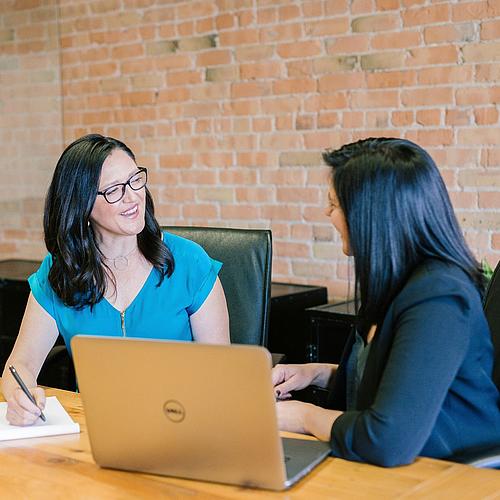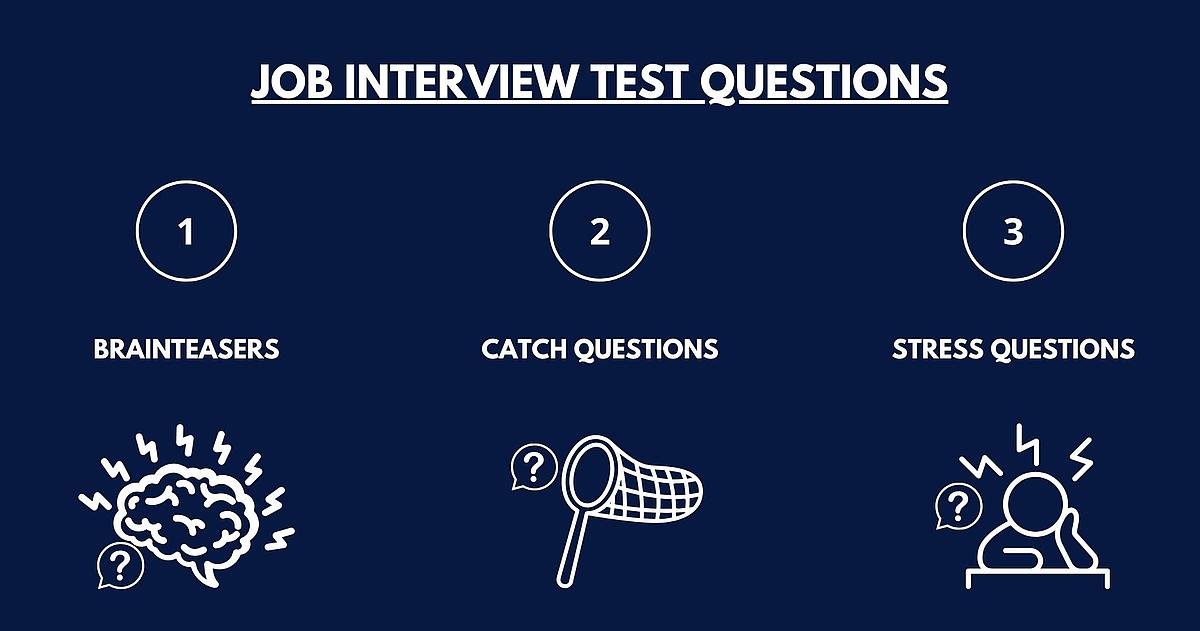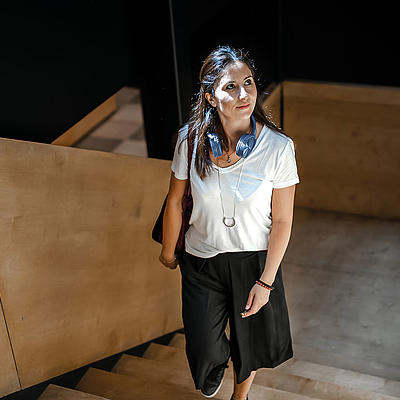This Website uses cookies to improve your visit on our website. More Info
Job Interview: These Questions are forbidden
A job interview is the decisive step on the way to a new job. Not only your professional qualifications play a role, but also the way you react to certain questions. This article presents typical questions asked in job interviews and provides helpful tips on how to answer them successfully. From standard questions about self-presentation to tricky questions about problem solving – good preparation is the key to convincing the interviewer and taking the next step in your career.
Job Interview Questions: What the Questions really mean!
During the job interview, the questions asked by the employer are aimed at getting a comprehensive picture of the candidate. In addition to the professional qualifications, they want to find out whether the personality, working style and motivation of the candidate fit with the corporate culture and the requirements of the position. Questions such as “Why did you apply to us?” or “Where do you see yourself in five years?” are used to understand the motivation, goals and seriousness of the application. Similarly, situational questions test problem-solving behavior and the ability to react appropriately in stressful situations. Employers want to ensure that the person not only fits into the team and company professionally, but also as a person.
PRO TIP: Be yourself and know your worth
During the interview, you usually no longer have to prove your qualifications, as they have already seen this in your résumé. It is much more about finding out whether you, with your appearance and ideas, fit in with the company and colleagues. Therefore, it is also important as an employee to pay attention to the atmosphere of the conversation. If an employer asks unpleasant questions or the like, then you should ask yourself whether this is a company you really want to work in.
General tips for confident answers in job interviews
Here you will find some general tips on how to answer questions in a job interview with confidence. With these tips, you will be well prepared to make a confident and professional impression in a job interview!
| Be well prepared for the interview | Thoroughly research the company, the industry and the position. |
|---|---|
| Know your own strengths, weaknesses and previous experiences so that you can present them confidently. | |
| Punctuality and professionalism | Be punctual or even arrive a few minutes early (at the company premises or virtual meeting location). |
| Make sure you look well-groomed and behave appropriately. | |
| Be confident but authentic | Be confident without coming across as arrogant. A firm handshake, eye contact and a friendly smile go a long way. |
| Speak clearly and distinctly, but remain natural and authentic. | |
| Active listening | Listen carefully to what the interviewer says and ask questions if necessary. |
| Respond to comments and address the questions specifically. | |
| Pay attention to body language | Maintain an open and upright posture. |
| Avoid fidgeting or playing nervously with your hands. | |
| Master situational questions well | Use the STAR method (Situation, Task, Action, Result) for questions about past projects or experiences to make your answers structured and clear. |
| Get to the point | Avoid long, rambling explanations. |
| Focus on the essentials and answer the question precisely. | |
| Keep calm when asked difficult questions | If you are asked a tricky question, take a moment to think instead of answering immediately. This shows that you are thinking carefully. |
| Ask targeted questions | Show your interest in the company and the position by asking well-considered, targeted questions. |
| Demonstrate flexibility and a critical mind | When faced with trick questions or stressful situations, stay calm and objective and show that you can handle challenges. |
| Formulate positively | Even when addressing sensitive topics, such as gaps in your résumé or criticism of a previous employer, formulate your answers in a positive and solution-oriented way. |
| Remain polite, even at the end | At the end of the interview, thank them for the opportunity to introduce yourself and express your interest in the position. |
| Follow up | Send a short, polite thank-you message after the interview to confirm your interest and leave a positive impression. |
Typical questions in job interviews
The following typical questions help employers to get a complete picture of you and to see whether you are a good professional and personal fit for the company.

- Tell us about yourself: This question is often used as an icebreaker and gives you the opportunity to briefly introduce yourself and highlight your most relevant professional experiences and skills.
- Why did you apply to us?: Employers want to know why you want to work for this company in particular and what attracts you to the position.
- What are your strengths and weaknesses?: This question is about assessing yourself honestly. Be sure to present weaknesses in a way that also shows how you are working on them.
- Where do you see yourself in five years?: This question is aimed at understanding your professional goals and ambitions and checking whether you will fit into the company in the long term.
- Why should we hire you in particular?: Here it is important to emphasize your unique selling points, i.e. the skills and experiences that distinguish you from other applicants.
- Describe a difficult project or problem you have solved: Situational questions like this help employers assess your problem-solving skills and your work style.
- How do you deal with stress?: This question is designed to find out how you react in demanding or stressful situations and whether you can work effectively under pressure.
- Why did you leave your last job?: Be sure to stay positive when answering this question and avoid speaking negatively about previous employers or colleagues.
- What motivates you in your work?: This question helps to understand your inner drives and to see if they align with the company culture.
- Do you have any questions for us?: This question is often asked at the end. Use it to show interest and to learn more about the company or the position.
If you are looking for more information for your interview, please feel free to visit our dedicated page:
To the article about Job InterviewsAsk your own creative questions in the
job interview

Your own questions in the interview
| How do you define success in this position? | This question shows that you want to know what is expected of you and how your performance will be measured. |
|---|---|
| What does a typical work day look like in this role? | This will give you a realistic insight into the day-to-day work and help you understand what to expect. |
| What challenges is the company or team currently facing? | This question shows that you think strategically and are interested in how you can make a positive contribution. |
| How would you describe the team culture? | It is important to know whether the corporate culture suits you. This question helps to better understand the dynamics of the team. |
| What training and development opportunities do you offer? | This shows that you are interested in your long-term professional development and are willing to learn continuously. |
| How do you help your employees maintain a healthy work-life balance? | This question shows that a balanced lifestyle is important to you and that you are committed to sustainable performance. |
| What is the ideal candidate for this position in your eyes? | This helps you to understand whether your qualifications and characteristics match the expectations well. |
| How do the departments in your company work together? | This question will help you understand more about the collaboration and communication within the company, which can be crucial for your day-to-day work. |
| What made you personally decide to work for this company and what do you value about your work here? | This is a personal question that often provides an authentic insight into the corporate culture and the perspective of the interviewer. |
| What innovations or changes do you expect in your industry in the next few years? | This shows that you think strategically and are interested in long-term developments. |
Asking your own creative questions in the interview shows interest, commitment and helps you to learn more about the company and the position. These creative questions help you to gain a deeper insight into the company and the position while also leaving a positive impression on the employer.
Bad questions to ask in a job interview
Asking questions in a job interview is important to show interest and learn more about the position and the company. However, there are some questions that can make a bad impression because they seem ill-considered or inappropriate. Here are examples of bad questions to ask in a job interview:

- How many vacation days will I get?: This question shows that you are primarily interested in your free time rather than focusing on the job itself. Vacation days can usually be found in the employment contract or in the job description.
- When can I expect a raise?: This question can be seen as demanding or greedy, especially if it comes up early in the conversation. Salary increases should only be discussed later in the job.
- How long is the lunch break?: Similar to asking about vacation, this question shows that you are more interested in the benefits than in the work.
- Do you monitor working hours?: This may sound like you don't want to stick to the working hours or are trying to find out how strict the company is.
- Do I really have to work with colleagues?: Teamwork is important in many jobs, and this question signals that you may have difficulties working in a team.
- How quickly can I get a promotion?: Although career growth is important, this question can come across as impatient or opportunistic. It is better to ask about development or training opportunities.
- What does your company do again?: This question shows that you have not prepared yourself sufficiently. Good research in advance of the interview is essential.
- Do you monitor your employees' social media activities?: This comes across as suspicious and could suggest that you have something to hide or do not want to follow company guidelines.
- When can I expect a decision? (asked too early in the interview): This question is basically fine, but it shouldn't be asked too early in the interview, as it could signal a lack of interest in the rest of the topics.
- Will you monitor my internet usage?: This question gives the impression that you could be focusing on your private activities at work rather than on the actual work.
It is important that your questions are well considered, relevant and professional. They should reflect your interest in the company, the position and your future responsibilities.
If you are still looking for information for your Cover Letter, your Résumé or your Salary Negotiation at the interview, then please feel free to check out our corresponding pages. Lots of exciting Tips and Tricks await you.
To the Overview Page of the Topics covered in the GuideIllegal questions in job interviews in Germany
In job interviews, there are certain questions that are considered inadmissible by law because they affect the privacy of the applicants or may be discriminatory. If such questions are asked in the interview, you have the right to give a truthful answer without this having negative consequences for the employment relationship. Here are some of the most important inadmissible questions according to German labor law:
Questions about family planning or pregnancy
Questions such as “Are you pregnant?” or “Are you planning to have children?” are not allowed because they intrude on personal life planning and can be seen as discriminatory.
Questions about religious affiliation or belief
You may not be asked about your religious beliefs unless the position is in a religious environment where belonging to that religion is a requirement under labor law (e.g. for church employers).
Questions about sexual orientation
Questions such as “Are you homosexual?” are also not allowed because they violate the German General Equal Treatment Act (AGG).
Questions about political beliefs
Questions about your political beliefs are not allowed unless they are relevant to the type of job (e.g. in certain political organizations).
Questions about health or illnesses
General questions about your health or past illnesses are not allowed, unless they relate to specific requirements of the advertised position (e.g. health restrictions that could affect the performance of the job).
Questions about criminal records
You may only ask about criminal records if they are relevant to the job advertised (e.g. for a job as a cashier in relation to property crimes).
Questions about ethnic origin
Questions about your nationality, origin or skin color are not allowed because they constitute discrimination based on ethnic origin.
Questions about financial circumstances
Questions such as “Do you have any debts?” or “How much income do you have?” are generally not allowed, unless the position is one where financial reliability is directly relevant (e.g. in certain banking jobs).
Job interview test questions
Test questions such as brainteasers, trick questions and stress questions are frequently used in job interviews to test the mindset, problem-solving skills and resilience of applicants under pressure.
Overview: Job Interview Test Questions
These three types of test questions are frequently used in job interviews:

Explanation: Job Interview Test Questions
Brainteasers, trick questions and stress questions are not necessarily intended to elicit a perfect answer, but rather to test your reactions and approach in challenging situations.
Brainteasers
Brainteasers are tricky, often mathematical or logical questions that are not necessarily about the right answer, but about how the candidate approaches the problem.
- How many golf balls fit on a bus? This question tests your analytical thinking and your ability to make assumptions and solve a problem systematically.
- How many windows are there in New York City? This question is about how you approach a seemingly unsolvable problem and whether you can think of creative solutions.
- How would you determine the weight of an airplane without weighing it? This question requires you to think outside the box and develop solution strategies.
Catch Questions
are designed to draw applicants out of their shells or to test their honesty and reaction to unexpected questions.
- Why are manhole covers round? This trick question is a classic. The reason: a round lid cannot fall into the hole, while a square one could. It's about showing logical thinking.
- What would you do if you won the lottery?: This question is designed to show how motivated you really are and whether you are only pursuing the job for financial reasons.
- If you were an animal, what would you be and why?: This tests your creativity and self-awareness, and there is no “right” answer. What is important is how you justify your choice.
Stress Questions
Stress questions are designed to put applicants under pressure and see how they deal with uncomfortable situations. The aim is to test emotional stability and resilience.
- Why should we hire someone like you at all?: This question challenges you without being insecure. It is important to remain calm and explain your strengths objectively.
- Why did it take you so long to find a job?: This is a critical question about your professional history that could make you feel uncomfortable. This question tests whether you can answer confidently and professionally without being rattled.
- How do you react to criticism? This question is designed to test your emotional intelligence and maturity. It is important to give a calm and confident answer that shows you can appreciate constructive criticism.
Tips for dealing with these Questions
The following tips will help you to deal better with these test questions in the job interview.
- Keep calm: Take time to think instead of answering hastily.
- Think strategically: Brainteasers are a chance to show how you approach a problem step by step.
- Be honest and confident: Remain honest and authentic, especially when it comes to trick questions and leading questions.
- Show creativity: When it comes to unconventional questions such as “If you were an animal...” it is often better to give an original answer with a reason than to give the “right” solution.
Last practical tips for preparing for the job interview Questions
Here you will find some practical tips to help you prepare even better for your job interview. For example, by simulating and regularly practicing, you will become more confident and able to respond to all questions in the interview with more assurance.
| Simulate an interview | Have a practice interview with friends or family members. They can take on the role of the interviewer and ask you typical questions. |
|---|---|
| Make sure that they also include difficult or stressful questions to test your reactions. | |
| Record the interview on video to analyze and improve your body language, speech, and reactions afterwards. | |
| Practice in front of the mirror | Practicing your answers in front of the mirror will help you control your facial expressions and gestures and develop a confident demeanor. |
| You can also practice your answer structure here to make sure you answer concisely and to the point. | |
| Practice talking to yourself | Ask yourself possible questions out loud and answer them. This will help you organize your thoughts and prepare you for common questions like “Tell us about yourself” or “What are your strengths?” |
| Talking out loud helps to overcome speech blocks and make answers more fluent. | |
| Practice interviewing with professionals or mentors | If you have someone in your network who has experience conducting job interviews, ask them to give you feedback. This is especially valuable because you get insights from a professional perspective. |
| Simulate a job interview in front of a camera (practice video interviewing) | Since many interviews today are also conducted virtually, you should practice how you come across in a video interview. Pay attention to camera angles, lighting and your internet connection. |
| Practice delivering your answers directly into the camera to simulate eye contact and check that your surroundings appear professional. | |
| Prepare your answers in writing | Write down your answers to typical questions in bullet points. This will help you to internalize key terms and core messages. |
| Avoid learning answers by heart, however, to avoid appearing stiff or unnatural. | |
| Practice your voice and delivery | Make sure you speak clearly, slowly and distinctly. Practice this by reading a text aloud or recording a voice message and listening to it to identify strengths and weaknesses in your delivery. |
| Practice your body language consciously | Your body language says a lot about your self-confidence. Make sure you have an open posture, walk upright and shake hands firmly. |
| Simulate body language even when you are sitting: Avoid crossing your arms or fidgeting, and maintain eye contact. | |
| Use online tests and platforms | There are many platforms that offer online simulations of job interviews, often with algorithms that analyze your appearance and responses and provide feedback. |
| Use these tools to get used to different types of questions and to reflect critically on yourself. | |
| Get feedback | After the simulation, ask your interviewers or observers for honest feedback. Ask specifically about your clarity, your body language and how convincing you appeared. |
Related Study Guides Topics:
Job Interview
Cover Letter
Résumé
Salary Negotiation
Salary Check
FAQ
Yes, technical questions will be asked during the interview to assess your professional knowledge, skills and experience and see if you meet the requirements of the position. These may include specific tasks, technical details or past projects to better assess your expertise in your field.
During a job interview, you can address weaknesses that have no direct influence on the advertised position, but at the same time show that you are working on them. It is more important to remain authentic and to emphasize how you deal with this weakness and actively improve it. This will make you appear reflective and solution-oriented.
In the interview, it is sufficient to mention one or at most two weaknesses that you can honestly explain and link to specific measures for improvement. Less is more here, as long as you come across as authentic and reflective.
During the interview, you can mention strengths that are well suited to the advertised position, such as teamwork, reliability, communication skills or a quick mind. It is important that you back them up with specific examples from your experience to make them credible.
To show your interest and professionalism, it's best to respond to an invitation to an interview as quickly as possible, ideally on the same day or at the latest on the next working day.
Interested in a study program? Request our information material now!
More exciting degree programs in Munich













